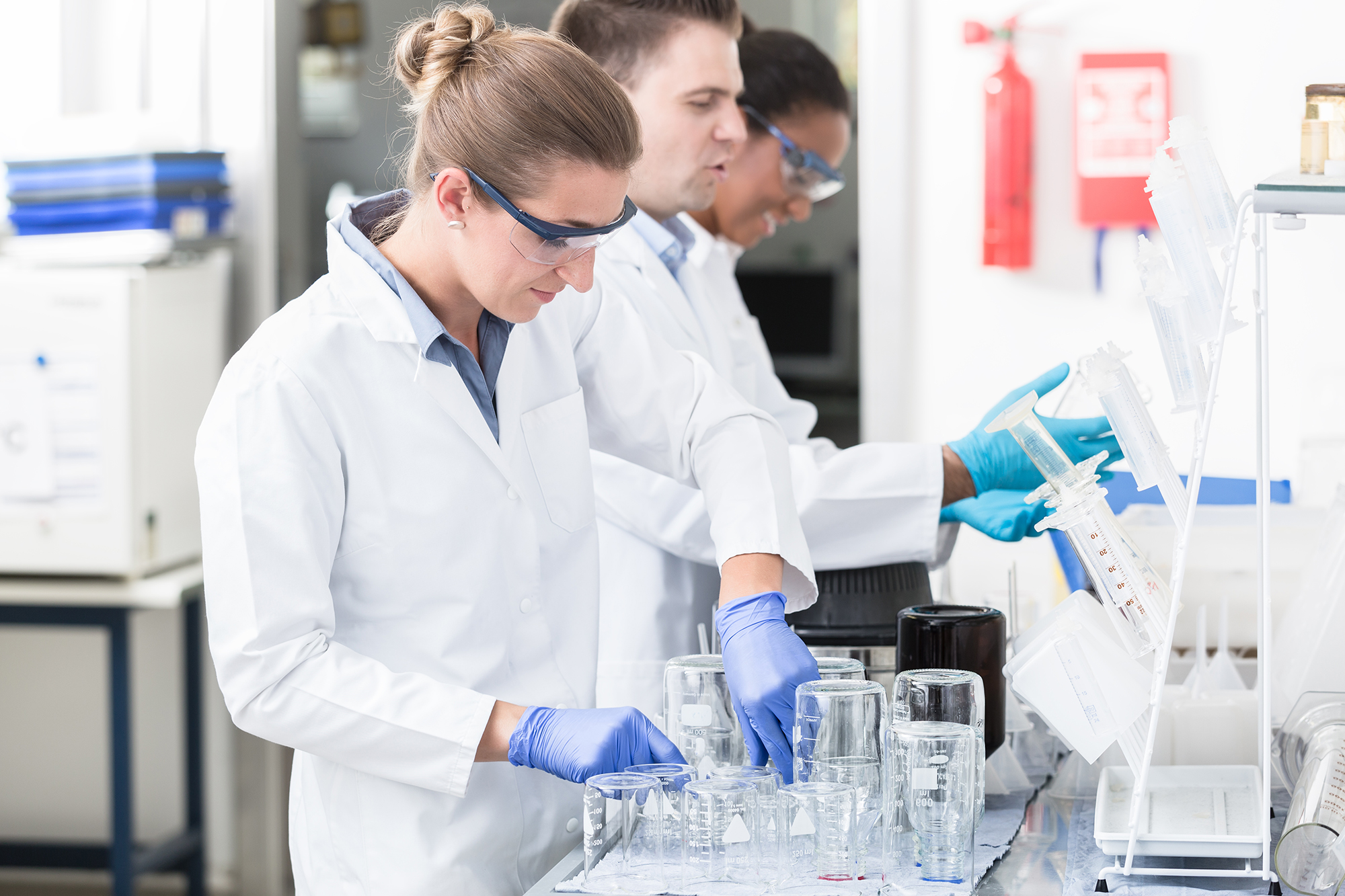
nextimmune2: participating research groups
Participating research groups
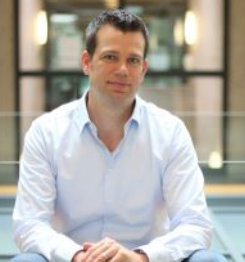
Brenner
Prof Brenner is the coordinator of the graduate school NEXTIMMUNE2. He received his PhD training within the Tumor Immunology Program at the German Cancer Research Center (DKFZ, Heidelberg, Germany) and continued his research career at the Ontario Cancer Institute (OCI, Toronto, Canada) before he joined the Luxembourg Institute of Health (LIH) as a group leader. He is the Deputy Director (Research & Strategy) of the LIH’s Department of Infection and Immunity and Full Professor of Immunology & Genetics at the Luxembourg Centre for Systems Biomedicine of the University of Luxembourg. In addition, he is an Adjunct Professor of Allergology at the University of Southern Denmark, serves as co-coordinator of the study group ‘Signal Transduction’ within the German Society of Immunology (DGfI) and is a member of the advisory board of the Signal Transduction Society (STS).
His major interests lie in unraveling metabolic and molecular regulatory circuits within the adaptive and the innate immune system. The immune system is crucial for a healthy body function and protects us from severe disease states. However, dysregulated immunity can cause inflammation, autoimmunity, and cancer. Specifically, the control of immune cell metabolism has emerged as a powerful way to regulate immunity. The Brenner laboratory investigates metabolic, molecular and cellular processes of inflammation and integrates in vitro with in vivo studies to gain a comprehensive picture of inflammation and cancer. The main vision is to develop new concepts for personalized medicine to mitigate inflammatory diseases through a mechanism-centered approach. As such, Prof. Brenner promotes a concept in which diseases are not treated based on symptoms, but on their mechanistic and individual cause.
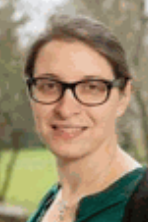
Letellier
Dr. Elisabeth Letellier is co-heading the Molecular Disease Mechanisms (MDM) group at the Department of Life Sciences and Medicine (DLSM) at UL. She performed her PhD thesis in Molecular Biology at the German Cancer Research Center (DKFZ) in Heidelberg, Germany, followed by a PostDoc in collaboration with a company, ApoGenix. In 2009, she joined the UL. After a PostDoc in the Cell Signalling group at DLSM, she became an independent investigator in the MDM group which she is co-heading since 2020. Her current research activities mainly aim at understanding the mechanisms underlying tumor initiation and progression in colorectal cancer (CRC), with a special focus on the tumor microenvironment (TME). The MDM group has developed state-of-the-art in silico (different bioinformatics tools as well as metabolic modelling), in vitro (3D organoids cultures of patient-derived samples) and in vivo models (CRC models and gnotobiotic mice) to understand how the different cell types of the TME, including immune cells and the cancer-associated fibroblasts as well as the different bacterial species of the gut microbiome, interact with the tumor cells.

Sauter
The research of the Systems Biology (Prof. Thomas Sauter, University of Luxembourg) group is focused in the area of Molecular Systems Biology, particularly in:
Model based Data Integration and Analysis of Disease specific Networks
We are developing modelling and data integration techniques to generate computational models of biological systems. The analysis of these models allows to gain insight into key properties of the investigated networks which builds the basis for designing promising experiments. Most group members have a dual background in molecular and computational biology. Our expertise covers genome-wide epigenomics approaches, data integration & reconstruction of molecular networks, predictive modelling applying network and machine learning approaches. Main applications also include the reconstruction of cancer-specific metabolic network models on genome scale. This allows to get a detailed understating of metabolic alterations in cancer and to identify sensitive intervention points for metabolism-based treatment of cancer. A similar methodology can be applied to other diseases with metabolic aspects.
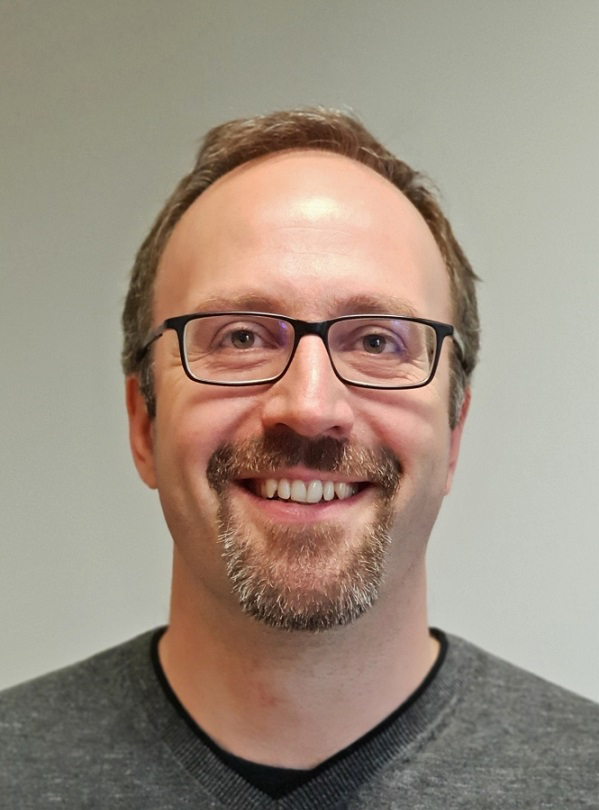
Moussay
Dr. Etienne Moussay studied Cellular Biology and physiology at the University of Nantes (France) and obtained a Master in Cellular and Molecular Infectiology from the University of Tours (France). Then he moved to Germany and obtained a PhD in Immunology, Cell biology, and Microbiology from the Justus-Liebig University in Giessen (2006), the topic of his PhD focusing on Shiga toxin 1 on mucosal immunity.
Etienne joined LIH as postdoc in July 2006 (Berchem’s lab) and since then worked on chronic lymphocytic leukemia (CLL). He became scientist in 2010 and group leader in 2015.
The Tumor Stroma Interactions (TSI) group, co-headed with Dr. Jérôme Paggetti, focuses its research on hematologic malignancies, CLL in particular, by using patient samples and transgenic murine models to study tumor immunology, the benefits of immunotherapy and the communication between cells in the tumor microenvironment (TME). Indeed, the tumor microenvironment plays a crucial role in leukemias/lymphomas as well and the TSI group aims at testing innovative therapies to stop the supportive effect of the TME.
Bréchard
Dr Sabrina Bréchard is a principal investigator in the Signal Transduction group at the University of Luxembourg. She obtained her PhD in Molecular Structural and Cellular Biology, from the University of Nancy in 2006 and ADR (Full Autorization to Direct Research) from the University of Luxembourg in 2020. She is particularly interested in the mechanisms regulating melanoma functions. Her current projects aim to understand how Ca2+ signalling pathways and neutrophils, which are present in the tumor microenvironment, can influence the behavior of melanoma cells and development of resistance during therapy.
Heneka
Prof. Heneka is a board-certified neurologist and clinician-scientist with extensive experience in studying neurodegenerative diseases at experimental, preclinical and clinical levels. Since January 2022, he is the Director of the Luxembourg Centre for Systems Biomedicine (LCSB). In addition, he is heading the Neuroinflammation group, which is involved in fundamental and translational research with a focus on neurodegeneration and neuroinflammation. His group aims at understanding molecular mechanisms of inflammatory regulation in a variety of neurodegenerative diseases, including Alzheimer’s disease, using novel preclinical mouse models and state-of-the-art techniques like two-photon imaging, transcriptome analysis and induced pluripotent stem cells (iPSCs). The group also studies the cellular interactions between microglia, neurons, astrocytes and oligodendrocytes through tunnelling nanotubes. From a translational perspective, the goal of the group is to develop new biomarkers and insights into medical interventions around various aspects of neuroinflammation involved in neurodegenerative and cerebrovascular diseases.
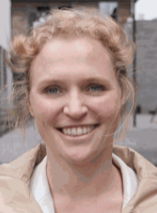
Grünewald
Prof. Anne Grünewald is the recipient of an ATTRACT career development grant from the Luxembourg National Research Fund (FNR) and Head of the Molecular and Functional Neurobiology Group at the LCSB, University of Luxembourg since 2016. Her research interest lies in the role of intra- and intercellular mitochondrial signaling in Parkinson’s disease. Her team is specialized in mitochondrial function and mtDNA (single-cell) analysis techniques, which are applied to iPSC-derived neuronal and glia models. To date, Prof. Grünewald has published 71 articles (ORCID ID: 0000-0002-4179-2994) in peer-reviewed journals. Among other involvements, Prof. Grünewald is a principal investigator in the FNR/German Research Foundation (DFG)-funded Research Unit “ProtectMove” and the FNR CORE grants CAMeSYN and RareCom, which deal with mitochondrial metabolism in disease. She is also a principal investigator in the FNR-funded doctoral training units NextImmune2, I2TRON, CiTICS and PARK-QC at the University of Luxembourg. Prof. Grünewald has supervised 10 doctoral students to date. Moreover, she acquired > 5 million EUR of grant support. With regard to academic administrative tasks, Prof. Grünewald is a member of the University Council, the Gender Equality Committee and the Leadership Academy (ULLA) of the University of Luxembourg.
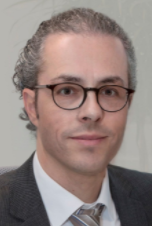
Krueger
Dr. Rejko Krueger is Professor of Clinical and Experimental Neuroscience at the University of Luxembourg (LCSB), at Centre Hospitalier de Luxembourg (CHL), Coordinator of the National Center of Excellence in Research of Parkinson’s disease (NCER-PD) and Director of Transversal Translational Medicine (TTM) at the Luxembourg Institute of Health (LIH), combining so fundamental research on neurodegeneration as well as clinical research. His major research interests are identification and study of the molecular signaling pathways and genetic variants (risk factors) that participate in the pathogenesis of Parkinson’s disease (PD) and personalized-new promising therapeutic approaches against PD. The ‘’Translational Neuroscience’’ group of LCSB headed by Prof. Dr. Krueger aims to identify novel mutations in genes related with familial PD cases and the functional consequences of these mutations, based mainly on patient iPSC-derived neuronal and glial cell models as well as animal PD models, in order to develop novel diagnostic and therapeutic strategies in the treatment of PD. High ranking publications and multiple collaborations with established research groups from all over the world highlight the novelty, creativity, quality, producibility and the significance of the ‘’Translational Neuroscience’’ group research, regarding neurodegeneration and especially PD.

Schwamborn
In 2002 Prof. Schwamborn obtained a diploma in Biochemistry from the University Witten/Herdecke in Germany and in 2005 a PhD in Biology from the University Muenster in Germany. He worked as a postdoctoral researcher at the Institute for Molecular Biotechnology in Vienna / Austria. Since 2013 he is head of the Developmental and Cellular Biology group at the Luxembourg Centre for Systems Biomedicine (LCSB) as well as Professor at the University of Luxembourg.
Prof. Schwamborn co-founded OrganoTherapeutics SARL-S, where he currently acts as CEO, in 2019. Before he was co-founder and CSO of Braingineering Technologies SARL (2016-2018).
The focus of his work over the last years was on Neurobiology, Stem Cell research and Parkinson’s disease. In particular he is interested in using human induced pluripotent stem cells for the development of brain organoid and assembloid models, which are used for in vitro disease modeling.

Bohn
Torsten Bohn is a food chemist and nutritionist by training. At present, he is heading the Nutrition and Health Group (Nutri-Health) of the Luxembourg Institute of Health, at the Department of Precision Health. Dr. Bohn also serves as an adjunct associate Professor at Luxembourg University, where he is teaching. Furthermore, he acts as Editor-in-Chief of the International Journal for Vitamin and Nutrition Research since 2014. Other activities include being part of the Nutri-Score Scientific Committee and EFSA’s panel on Nutrition, Novel Foods and Food Allergens. His main research field is micronutrients and secondary plant metabolites, their digestion, metabolism and relation to chronic diseases, especially those characterized by oxidative stress and inflammation. He is author of over 150 scientific publications, with a current H-index (google scholar) of 47, more information is found on ORCID.
His group Nutri-Health focuses on chronic diseases, environmental health and socio-economic determinants of health. The team places a particular emphasis on the analysis of the interactions between environmental and lifestyle factors and how they affect health in both positive and negative ways. The Nutri-Health team contributes to a better understanding of the state of health of the Luxembourgish population, in particular with regard to cardiometabolic health.

Fagherazzi
Guy Fagherazzi is the Director of the Department of Precision Health at the Luxembourg Institute of Health (LIH), which is composed of 9 research units and where he leads the research activity related to public health and epidemiology. He is also the Head of the Deep Digital Phenotyping Research Unit at LIH. He is a Senior Research Scientist in Digital Epidemiology with strong expertise in the analysis of large population-based studies using Artificial Intelligence (AI) methods. The main research objective of the Deep Digital Phenotyping Research Unit is to pave the way for modern real-life health research studies by being at the interface between digital epidemiology, data science, and clinical research. We implement comprehensive observational and real-life studies to identify digital biomarkers for monitoring the health of patients with chronic diseases such as diabetes or cancer.
Williams
The Gene Expression & Metabolism group focuses on how varying environmental factors (e.g. diet, exercise, antibiotics) interact with natural genetic variations between individuals. In particular, how do these factors drive molecular changes at the cellular level which eventually manifest as clinical diseases, such as obesity and diabetes? What are the causes of variation among diverse populations, and how can we better predict individuals’ risk to subsequently develop a metabolic disease based on their current molecular trajectory? In particular for this project, we are focusing on how host genetics and varying environmental factors change the microbiome, and how this in turn affects a wide-range of metabolic traits, e.g. digestion, energy metabolism in the gastrointestinal tract, systemic inflammation, and so forth. Moreover, rather than simply comparing “control versus case”, we can make use of time-course collections of the microbiome and compare this with continuous phenotypic observations in order to identify and better model the development of metabolic disorders. Research in the laboratory focuses on high-throughput data collection, biostatistics, and bioinformatics, but each project has a wetlab component as well.

Desai
Mahesh S. Desai is the Group Leader of the Eco-Immunology and Microbiome team at the Luxembourg Institute of Health and is an Adjunct Associate Professor in ‘Gut microbiome in health and disease’ at the University of Southern Denmark, Odense, Denmark. He is working as a visiting scientist at the RIKEN Centre for Integrative Medical Sciences, Yokohama, Japan. He obtained his PhD at the International Max Planck Research School, Marburg, Germany, and underwent postdoctoral training at the University of Michigan Medical School, Ann Arbor, USA.
Diet is a major driver of the gut microbiome, yet the microbiome-mediated mechanisms that link diet to various diseases are poorly understood. Research in Desai Lab focuses on discerning these mechanisms and the underlying immunological processes via interactions of the microbiome with the colonic mucus barrier, which serves as the first line of defense against the invading pathogens. Since the modern diet of developed nations includes significantly reduced dietary fiber, his lab seeks to understand how the fiber-deprived gut microbiome impacts our health and contributes to disorders such as inflammatory bowel disease, food allergy and multiple sclerosis. His team aims to design dietary therapeutics to strengthen the mucosal barrier and to improve health.

Kuehn
Chronic inflammation represents today a significant burden to healthcare systems and to society. Our research focuses on allergy, which is the most prevalent immunological disease involving chronic inflammation. We aim at discovering new translational solutions for the care of allergic patients. As our scientific background, we have a strong expertise in the molecular and immunological characterization of allergenic proteins, allowing us to address what makes an allergen an allergen and to respond to the demand for advanced precision diagnosis of allergic patients. We contributed substantially to the integration of molecule-based diagnosis into clinical practice. Our extended profile in translational food allergy research comprises now combining multiple patient endotyping approaches, ranging from deep IgE-footprints and immune cell phenotypes to functional gut microbiome traits, in order to discover key biomarkers and targets for treatment, therapy and prevention.
Szpakowska
Dr. Martyna Szpakowska obtained her master degree in biomolecular sciences from the Vrije Universiteit Brussel (VUB) and her PhD in Molecular Pharmacology from the GIGA Research Centre (ULiège) and LIH in 2016. She then joined the Laboratory of Structural Biology Brussels at the VUB where she worked as a postdoc, applying Nanobodies to study GPCRs. In 2019, she returned to LIH as a Scientist and now co-supervises the group of Immuno-Pharmacology and Interactomics with Dr. Andy Chevigné. She published 30 peer-reviewed articles related to pharmacology and GPCRs and is co-inventor of four patents. She was recently awarded the Galien prize of Pharmacology 2019 for her achievements in investigating atypical chemokine receptors.
The group of Immuno-Pharmacology and Interactomics (IPI) of the Department of Infection and Immunity (DII) at the Luxembourg Institute of Health (LIH). The group is formed by2 post-doctoral researchers, 5 PhD students and 3 technicians. The main objectives of the group are (1) to investigate the roles of chemokine receptors in immuno-oncology-related processes and inflammatory diseases, (2) to study the receptor determinants involved in ligand binding, activation and intracellular signalling and (3) to develop molecules with anti-tumoural or immunomodulatory properties by targeting chemokine receptors or their ligands.
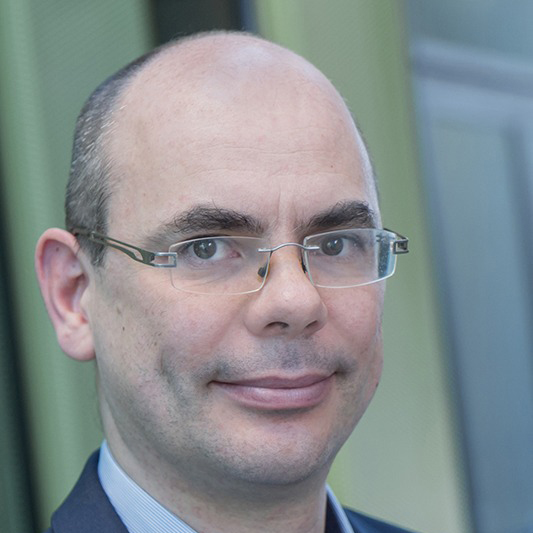
Turner
Dr. Jonathan Turner is Principal Investigator of the Immune-Endocrine-Epigenetics Research Group in the Department of Infection and Immunity (Luxembourg Institute of Health). He is particularly interested in how the early life period induces epigenome-wide modifications that encode the increased risk of developing allergies, mental-health problems, and cardiovascular disease later in life. His interests range from in vitro, via preclinical models to human clinical cohorts. In order to understand the consequences of trauma his team use an interdisciplinary holistic approach in collaborations with psychologists, psychobiologists and economists. They aim to integrate psychological, socioeconomic and demographic data with biological data from multiple physiological systems, particularly “off target” tissues, to understand how the early life environment induces a lifelong-programmed phenotype. Within NextImmune2 his team are investigating the effect of psychosocial and socioeconomic adversity on the immune system using CyToF immune profiling and DNA methylation analyses. The project proposed by his team investigates the functional effects of such adversity particularly on NK cells.
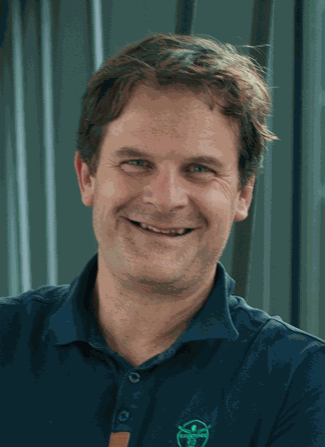
Dittmar
Regulated cellular growth relies on the well-orchestrated interplay of DNA, RNA, and proteins. This interplay forms a complicated regulatory network. Failure of the network to maintain key restrictions can lead to unregulated growth (cancer), protein aggregation (neurodegenerative diseases), unregulated immune responses, and other diseases. A critical layer of the network is the regulation of the protein-protein interactions by post-translational modifications (PTM).
My research group works on determining and understanding the impact of these changes. We are using different molecular biology techniques and combine them with state-of-the-art mass spectrometry and advanced data analysis techniques.
Studying the impact of PTMs on cellular signaling essentially falls into two different tasks: (1) the identification of the PTMs on the modified proteins and (2) the changes the modification induces in the network. My laboratory uses mass spectrometry and molecular biological methods to address both. We identified PTMs in multiple studies ranging from simple PTMs like phosphorylation, acetylation, or methylation to complex modifications like ubiquitin or Nedd8 or rare modifications like citrullination or pyroglutamine. To study changes in the cellular interactome we are using in vivo labelling techniques and metabolic isotope-dependent labelling techniques (e.g. SILAC) to identify changes in the interactome systems using mass spectrometry and microscopy.

Ollert
Prof Markus Ollert is a clinician scientist with board certifications in dermatology and allergology. He is the inaugural director of the Department of Infection and Immunity (DII) and Professor of Clinical Allergology at the University of Southern Denmark, Odense University Hospital. Before joining the LIH he acted as the Scientific Director of the Clinical Research Division of Molecular and Clinical Allergotoxicology at Technische Universität München (TUM), one of the five German national centres of excellence in allergy research funded as a large-scale collaborative research grant by the German Ministry of Education and Science (BMBF), and as Deputy Chairman of the Department of Dermatology and Allergy. Before moving to Luxembourg, he held a professorship in Molecular Dermatology and Immunology from TUM, Munich, Germany. He also was a founding member of the Graduate School in Information Science and Health (GSISH) at TUM in Munich, funded through the Excellence Initiative of the German Research Foundation (DFG).
Mittelbronn
The Luxembourg Center of Neuropathology (LCNP) is a translational research group focuses on neurodegenerative and neurooncological disorders working with genetic and interventional mouse models, cell culture based approaches and human tissue located at the Laboratoire national de Santé (LNS, Dudelange), Luxembourg Centre of Systems Biology (LCSB, Esch/Alzette) and Luxembourg Institute of Health (LIH, Luxembourg). The LCNP has a strong expertise molecular, cell and tissue imaging using light, immunofluorescence and electron microscopy as well as correlative light and electron microscopy imaging (CLEM). The LCNP team further has expertise in epigenetic testing including both array-based analyses and nanopore sequencing, RAMAN spectroscopy and transendothelial electrical resistance (TEER) analyses. Together with the LIH and clinical partners, the LCNP team is responsible for brain banking.
Our major research focus is addressing early development and progression in neurodegenerative disorders, especially Alzheimer and Parkinson disease as well as in malignant primary and secondary tumors of the central nervous system.
Michel Mittelbronn is Professor of Neuropathology at the University of Luxembourg heading the LCNP as well as the National Center of Pathology (NCP at LNS).

discover nextimmune2
contact
For any question related to the NextImmune2 DTU, please contact :
Prof Dirk Brenner
Funded by

our open positions
Please visit our LIH Jobs Portal to apply.
☛ Read more about our first NextImmune doctoral training unit (DTU):

